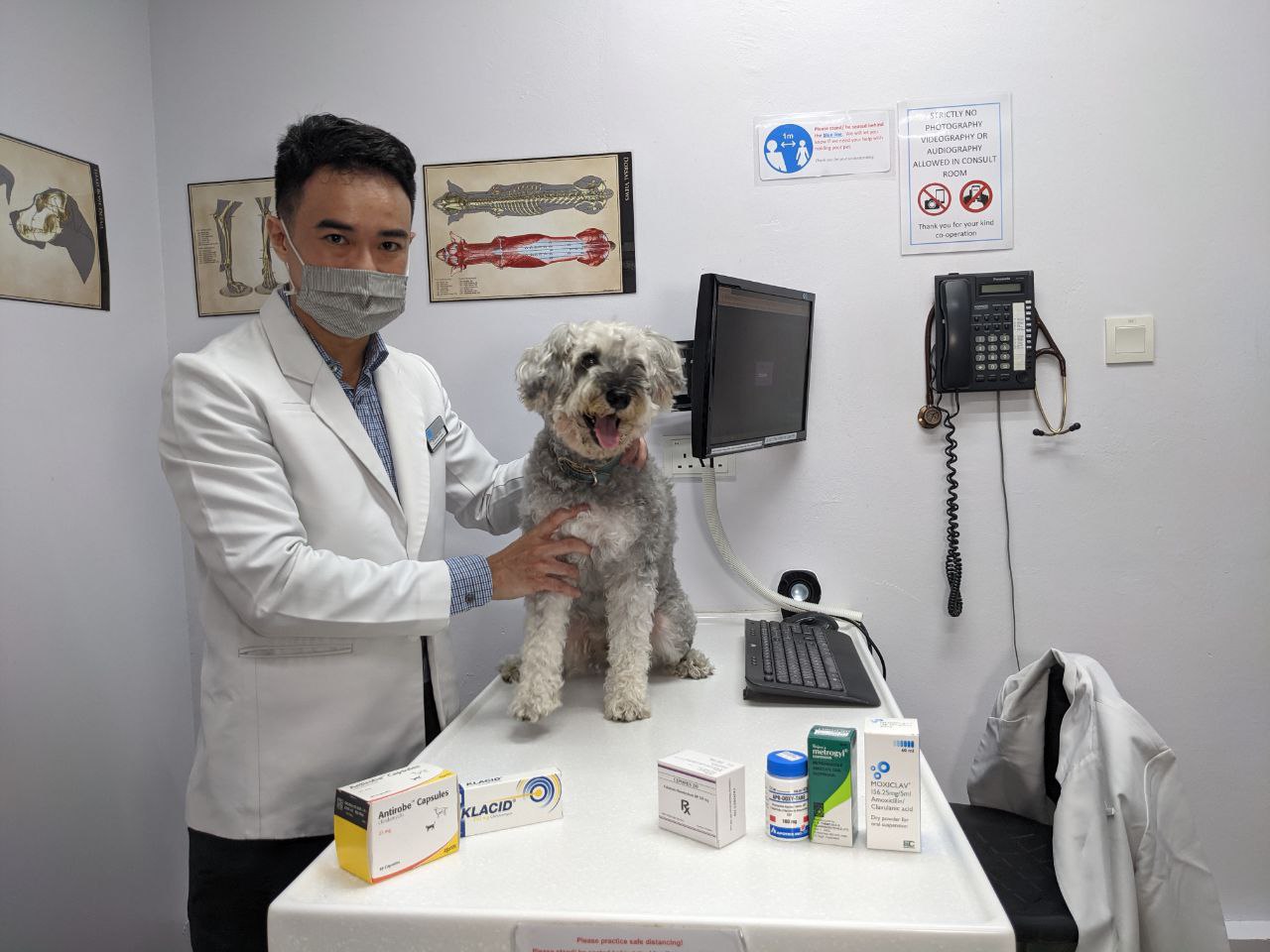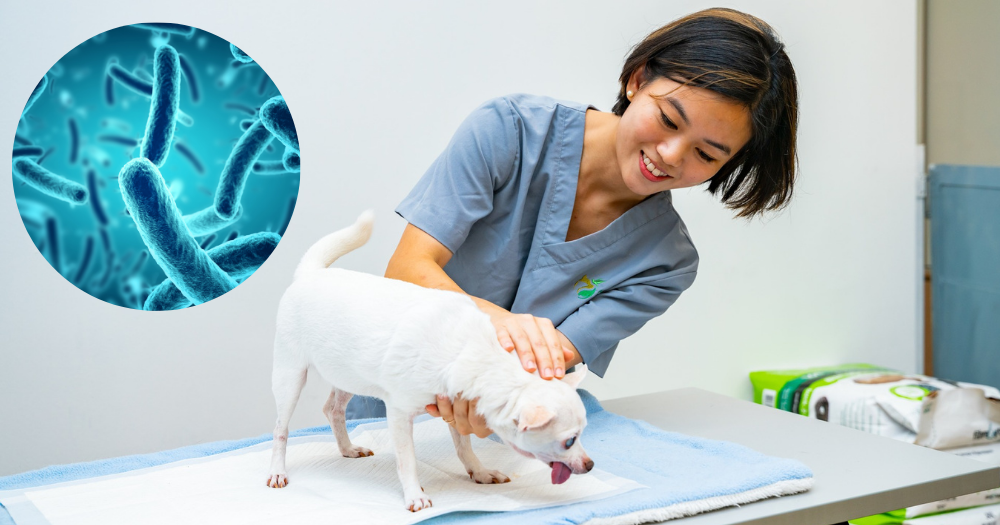Follow us on Telegram for the latest updates: https://t.me/mothershipsg
The National Parks Board (NParks) launched its very first national guidelines for the prudent and responsible use of antibiotics for companion animals on Nov. 22.
The guidelines were developed in a local context, as a collaborative effort by the Animal and Veterinary Service (AVS), Singapore Veterinary Association and private vets.
Based on current scientific evidence, the guidelines provide the best practices for specific treatments for antibiotics, tools for client communication and education, and biosecurity measures to minimise the risk of antimicrobial resistance spreading in clinics.
Antimicrobial resistance in pets
According to the guidelines, reports from 2014 to 2016 indicated that almost half of the bacteria isolated from unwell companion animals were multi-drug resistant.
"Antimicrobial resistance development is natural, but it's actually the misuse and overuse of antibiotics that apply the selection pressure, pushing bacteria to be more resistant to antibiotics," explained Kelvin Lim, Director of Veterinary Health Management at AVS.
"The prudent use guidelines mean that you only use antibiotics only when it is necessary, at the right dose for the right duration, which minimises the risk of antimicrobial resistance development," he said.
For example, the antibiotic medication Colistin has been banned for use in food animals like poultry and fish in Singapore, as studies have shown that it can exacerbate the development of antibiotic resistance.
"Colistin is a powerful antibiotic and we want to preserve them for life saving situations as a last resort," said Lim.
"We want to use first line antibiotics which are more targeted, and we know that it works," he added.
Antimicrobial resistance reduce the effectiveness of antibiotics, so doctors will then have less tools at hand to treat bacterial infections, and common infections may become harder to treat.
 Principal Vet at Amber Vet Brian Loon with his Miniature Schnauzer, Hayden.
Principal Vet at Amber Vet Brian Loon with his Miniature Schnauzer, Hayden.
Guidelines for vets
Vets can use these guidelines to determine "the need for antibiotics in a given situation", and "the best antibiotic to use for a given situation based on international journals and standards," said Suria Fabbri, a veterinarian at AVS.
For resistant infections, vets can also identify the need for further testing to be done to tackle the infection in a targeted manner.
Research labs like the one in AVS receive bacterial samples from vet clinics and carry out Antimicrobial Susceptibility Testing (AST).
The test works to identify the bacterial strain responsible for the infection, as well as the antibiotics and dosage that will be effective against it.
While waiting for the results, which takes two to three days, vets may prescribe empirical antibiotics for the sick animal.
The AVS lab is also involved in Whole Genome Sequencing (MGS) of the bacterial sample, to understand the genetic basis for resistance mechanisms. This process takes about five to six days.
With this capability, the AVS also conducts bio-surveillance programmes for animals in local farms, pets, wildlife and aquatic animals to determine the trends, origins and transmissions of antibiotic resistance in different animal populations.
What to take note of as a pet owner
To slow down the development of antimicrobial resistance, pet owners are advised to take a following precautions:
- Owners are advised to keep their pet up to date in their vaccinations, and do regular health checkups to protect their pets from vaccine-preventable infectious diseases in the first place.
- After a visit to the clinic, owners should provide medication to their pet as prescribed by the vet. Follow the dosage and treatment duration as advised and make sure to complete the full antibiotics treatment.
- Owners should not self-medicate pets with leftover antibiotic medication for recurrent infections, as they might not be caused by the same bacteria.
- Maintain good hygiene practices when the pet is sick, making sure to wash their hands and keep the pet and environment clean to reduce the spread of bacteria.
Pet owners should also take note that resistant bacteria can be transferred between humans and animals with close contact.
Related stories
Top images via Animal Buzz SG/Facebook
If you like what you read, follow us on Facebook, Instagram, Twitter and Telegram to get the latest updates.

